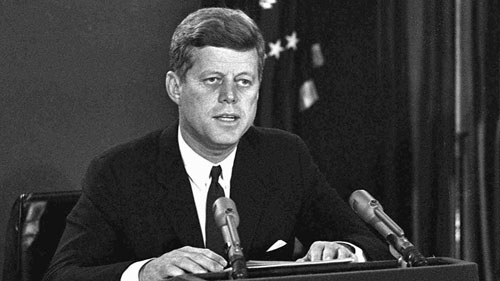FPI / May 16, 2019
Since the end of World War II, all U.S. presidents have used covert action, mostly in support of resistance movements or insurgencies, according to a study by Joint Special Operations University.
“Support to resistance can be thought of as a means of bridging the hazy gap between soft power and hard power,” states Will Irwin, author of the report, “Support to Resistance: Strategic Purpose and Effectiveness,” and a former special operations commando.

Joint Special Operations University is based at the Special Operations Command near Tampa, Florida.
The report examines 47 cases and identifies three categories — disruptive operations, coercive operations and regime overthrow operations. The cases cover U.S. covert action programs carried out over the past 70 years in Asia, Europe, South America and Africa.
“The report provides important information for policymakers seeking to address the current rise of authoritarian and totalitarian states,” according to security correspondent Bill Gertz.
“A common thread in all 47 case studies in the report is that the targeted states were ruled by unfriendly occupying forces or repressive authoritarian regimes,” he wrote in a Washington Times column.
Disruptive operations involve isolating, destabilizing and undermining the authority and legitimacy of hostile foreign governments or occupying powers. Operations examined in the report included covert actions in the Soviet Union, Poland, Albania, China, Tibet, Afghanistan, North Korea, Kuwait and Iraq.
Coercive operations involve supporting resistance through the use of threats or use of force to persuade foreign governments to change policies that are contrary to U.S. interests. Examples include North Vietnam, Angola, Nicaragua, Cambodia, Afghanistan and Kosovo.
Regime change operations seek to support resistance movements that can oust regimes hostile to the United States or regimes that threaten U.S. interests. The report looked at case studies from Albania, 1949-54; Cuba, 1960-65; Indonesia, 1955-58; Afghanistan in 2001 and 1989-91; and Serbia from 1999 to 2000.
“Much has been written recently about the current global decline of democracy and the rise in authoritarian forms of government, where single-party regimes, strongmen, or autocratic military juntas have survived or have taken control of countries whose inhabitants have had at least some exposure to democracy or who have seen limits placed on freedoms they once enjoyed,” Irwin states.
“In some significant countries, strong leaders have held on to power for many years, some going so far as to declare themselves president for life” — a reference to Chinese President Xi Jinping.
FPI, Free Press International
Your Intel Brief: Geostrategy-Direct __________ Fix The Media Now
